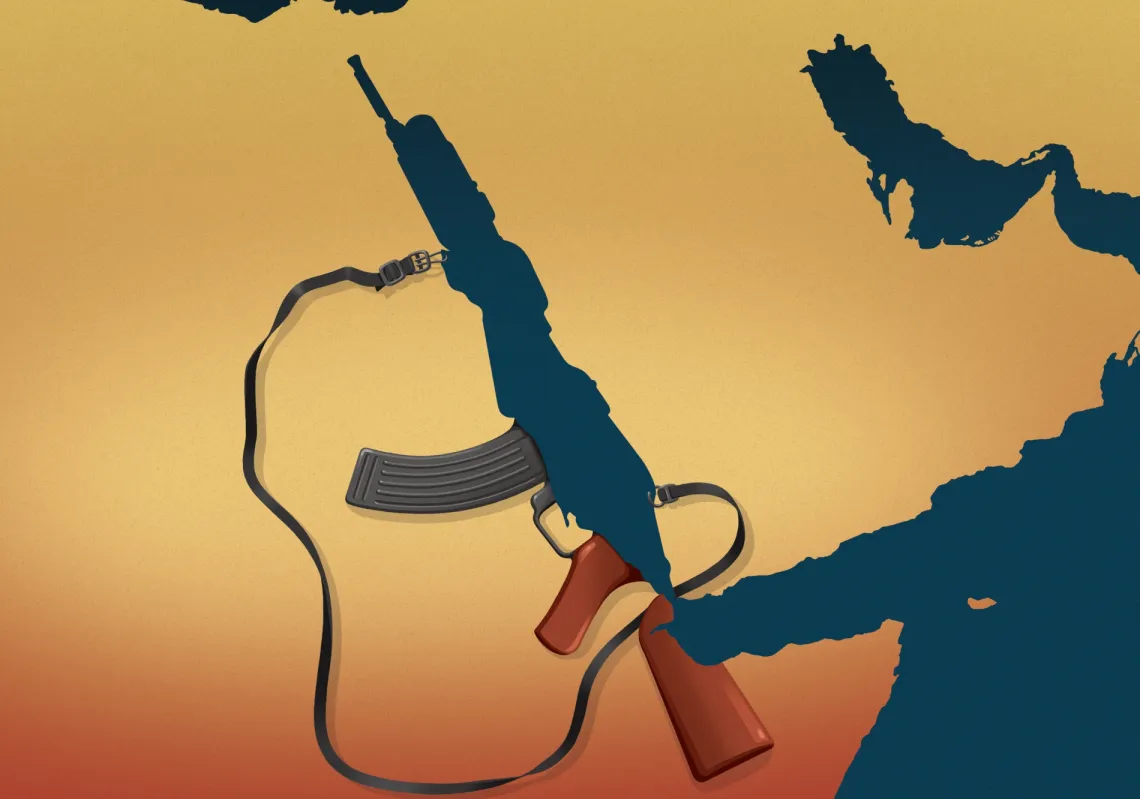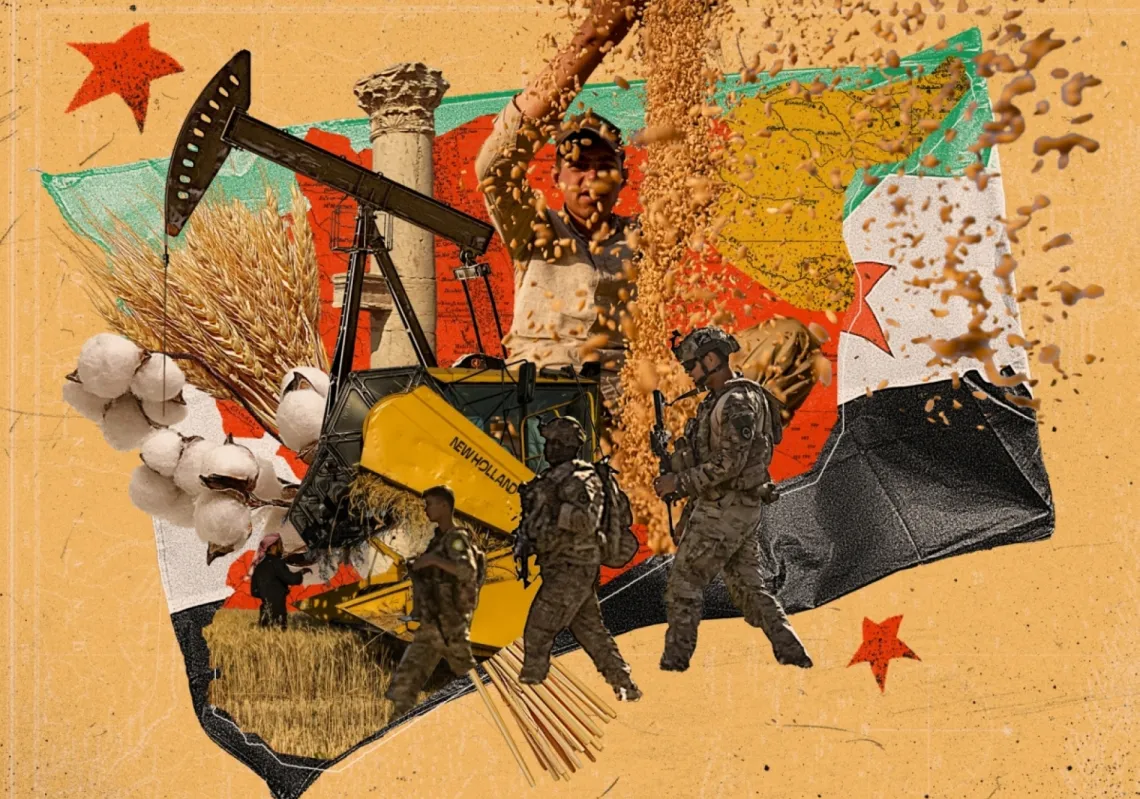“A 27 Million Euro Gift for Asma al-Assad: A Scandal in Arises in Syria after Russian Accusations”. That was a headline of an article published by French newspaper “Liberation” which spoke about Syrian regime president Bashar Al-Assad’s purchase of a painting called The Splash for his wife. The Liberation article cited a news publication claiming to have close ties with the Kremlin, which stated “the Syrian dictator gifted his wife with a painting by British artist David Hockney, the painting was bought at a London auction and cost 27 million Euros”.
Just like that, the Syrian regime adds more to its growing series of crimes. While purchasing a painting is not a crime in of itself, days before the acquisition the regime issued a joint statement with the Russian government regarding the return of Syrian refugees: The statement asked for “the international community to support the Syrian government, and pressure the US and its allies to lift illegal and inhumane sanctions that aim at exterminating the population of an entire country”.
In a tragic irony, the person who killed more than half a million people and displaced no less than 12 million Syrians out of their homes is now accusing others of committing genocide on the Syrian population.
In reality, while the governments of the world were busy with measures to protect their citizens from the risks of COVID-19, the Syrian regime was carrying on with its operation of genocide against the Syrian people, an operation that has been on-going for the past nine years. This is the real reason why international sanctions are placed on the regime and its supporters.
In spite of these sanctions, the regime did not back away from its policies, nor has it initiated the release of its jailed detainees. According to the Syrian Network for Human Rights, the regime has imprisoned 130,000 detainees, most of whom are living in inhumane conditions. The UN and other international organisations have demanded the release of prisoners of conscience and detainees who are older than 60, but the Assad regime refused to comply and has instead opted to continue its arbitrary arrests.
For its part, Russia is responsible for the deaths of thousands of civilians, the destructions of hospitals, and the blockade of cities and villages. Hundreds of Syrians under those blockades died as a result of either starvation or the lack of medicines. Russia has also been blocking the entry of humanitarian aid, as a matter of fact back in December 2019, it, along with China, vetoed the extension of Security Council Resolution 2165 which allows the UN to enter humanitarian aid across the Syrian border. After widespread controversy, Russia agreed for the extension, but only for a brief period of six months and only allowed aid to go through two border crossings.
The Syrian regime and Russia both claim that the sanctions are causing mass deaths to the Syrian population are funnily enough the same Syrian regime and Russia, which launched a series of monstrous attacks on Idlib during the past few months. It is these attacks that caused more than a million Syrians to be displaced from their homes. Moreover, it is futile to count the number of crimes that the Syrian regime has committed on its people, and these crimes only grew after Iran and Russia joined Assad in his war.
The regime is now exploiting the Coronavirus to call for the lifting or easing of sanctions placed on it. However, complying with such demands would be a disregard for the sheer scale of the tragedy in Syria, and a sign of ignorance on how the regime operates.
Ever since coming to power in 1970, this regime has been a living embodiment of corruption. Bashar continued his father’s legacy of corruption, as he continuously corrupts all his cabinet appointees who, in turn, help conceal the regime’s misdemeanours. Bashar’s secret purchase of the painting is a prime example of such cover-ups.
During the civil war, the regime took advantage of humanitarian aid. A few years ago, the Guardian revealed how the UN had awarded contracts to organisations and individuals close to Assad in order to carry out humanitarian missions in Syria. This was happening despite the sanctions imposed by the US and the EU. A report from Human Rights Watch also mentioned how the Syrian regime used humanitarian aid and reconstruction aid to consolidate its repressive policies.
Allowing people to get infected and/or die from the Coronavirus is morally and politically reprehensible. However, lifting sanctions on the Syrian regime will not pave the way towards aiding the Syrian people, rather it would be a signal to the regime that its murder of half a million Syrians has been forgiven. Sanctions lifting would also be a green light for the regime to kill more of its people as well as purchase more antiquities and paintings.
Sign up for our Weekly Newsletter
Get the best of Majalla, straight to your inbox.








